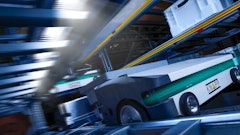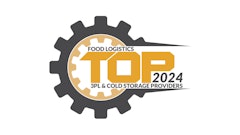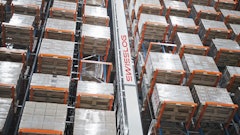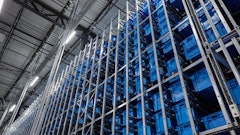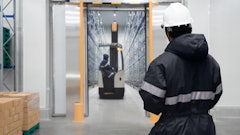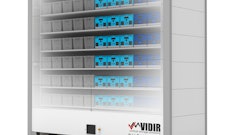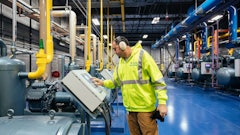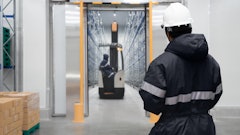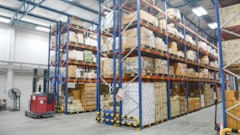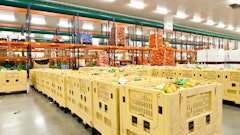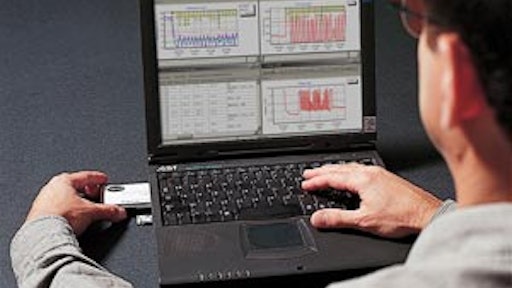
When handling temperature-sensitive products, precise temperature control is critical. The challenge is to keep the refrigerated trailer as close to set-point as possible for maximum product quality and shelf life—despite aging fleets, frequent door openings and outside temperatures that all threaten to take holding temperatures inside the trailer out of range.
In the past, the answer was to lower the reefer temperature settings to ensure that trailer temperatures never reached a problem area. But now, new intelligent reefer technology from both Carrier Transicold, Farmington, CT, and Thermo King, Min-neapolis, is making it easier for drivers and fleet managers to keep the proper temperature settings inside the trailer.
“With today’s equipment, there is so much that benefits the user with the controls,” says Ignacio Aguerrevere, director of marketing and product development at Carrier Transicold. “For the fleet manager, it’s actually better at controlling the temperature of his cargo, and it makes it easier for the driver as well.”
“The end result is that the entire temperature control system has been raised to a higher standard of quality and performance, providing our customers with greater peace of mind and helping their businesses run smoother,” agrees Doug Lenz, Thermo King’s product manager for trailer and rail.
Thermo King’s newest reefer controller is the Smart Reefer 2, which it first released in 2004. The in-cab controllers allow drivers to pre-trip the refrigeration unit and pre-cool the trailer while en route to pick up perishable cargo. All this can be done with the touch of a button, right from inside the cab. The unit can even display its scroll-down menu in 21 languages.
Carrier Transicold’s unit is called Ad-vance, and with an option called IntelliSet, fleet managers can pre-program it with very specific trailer temperature set-points based on the types of commodities hauled most frequently. Fleet managers can also pre-program the units’ economy settings related to airflow, start/stop or continuous operation, off times, restart times, temperature overrides, defrost intervals and more.
Once all these settings are pre-loaded using Carrier’s ReeferManager software, all the driver has to do is select the commodity type from a scroll-down menu on the reefer control panel prior to loading the trailer and the reefer itself will do the rest.
Carrier recently expanded the number of commodity profiles that can be programmed into its Advance controllers. The units now can store reefer operating parameters specific to up to 100 commodity types. “As customers discovered how powerful and valuable the IntelliSet option was to their operation, they requested the ability to store more profiles,” says Mark Fragnito, Carrier’s electronics product manager.
Sound The Alarms
For both companies, increased self-diagnostics and temperature logging devices also accompany the units. These devices not only monitor internal trailer temperatures and unit performance, but automatically send alarms to the drivers and fleet managers when trailer doors are opened, internal temperatures fluctuate or something else goes wrong.
The Advance microprocessor takes information from ProductShield sensors both inside and outside the trailer to intuitively determine when to switch between high or normal airflow and continuous-run or auto-stop/start mode. It can even shut the unit down entirely when preset temperatures for inside the trailer and outside temperatures are the same. When the outside temperatures drop below freezing, the unit will also pre-heat the diesel fuel needed to run the reefer to prevent gelling.
Beyond the basic programming functions, Carrier’s ReeferManager software, linked via satellite, cellular or radio communications networks through DataTrak, also allows the fleet manager, from the PC in his office, to monitor and analyze unit performance, fine-tune reefer operation as needed or as conditions on the road dictate, change setpoints, set defrosts, clear alarms, and turn the refer on and off.
“If you want to monitor temperatures 24/7, you can do that with your wireless network,” says Aguerrevere.
A report function produces customized performance graphs for the driver and manager to assure customers of hazard analysis and critical control point (HACCP) compliance and to help avert load claims. Those reports can be printed out for the driver to hand to a receiving clerk using an optional StripPrint battery-powered printer that can be plugged into the Advance unit.
The system also offers a complete pre-trip inspection, capable of performing 15 critical system tests.
On Thermo King’s SmartReefer 2, an optional CargoWatch data logger records temperature changes and other trailer events with six temperature sensors, four door switches and a humidity sensor. The ServiceWatch logger provides improved diagnostics and keeps track of overall system performance and preventive maintenance schedules. The keypad features a lock-out mode, diesel/electric auto switching, setpoint warning and more. Continuous monitoring control unit provides ongoing display of cargo temperature. Troubleshooting alarm codes are displayed to provide the driver with immediate unit operating discrepancies.
These units “take quality and reliability to a new level,” says Lenz. “We work very hard to understand our customers’ businesses and the commitments they have with their own customers. Their primary concerns are protecting the load, on-time delivery performance and minimizing operating costs.”
One such customer was specialty foods manufacturer T. Marzetti, Columbus, OH, which recently purchased 25 new Thermo King SB-210 refrigeration units to replace other Thermo King units that had been in service for at least 13 years.
The new units are equipped with the SmartReefer 2 controller.
“The new technology of the SR-2 was a big selling point for us,” says Pat Toler, the company’s food group distribution center manager. “These units are both advanced and intuitive, and our drivers enjoy the controller’s user-friendly operation.”
The SR-2 also helps T. Marzetti trucks stay on the road longer with reduced maintenance requirements. “The controller definitely assists our technicians in finding problems faster,” says Rodd Hott, general manager of Transport Specialists-Central Inc. “We understand the importance T. Marzetti places on delivering fresh products to customers in a time-effective manner, and it’s an advantage to be able to diagnose a maintenance problem quickly.”
Savings Add Up
Carrier tested the IntelliSet option on a live load of 20,000 pounds of lettuce in conditions simulating a two-day trip through the desert, with outside temperatures as high as 115 degrees. A setpoint of 32 degrees was used for the trailer reefer and the unit veered an overage of 0.1 degrees only. In high-air mode, fuel savings of 36 percent were achieved and product protection was never compromised.
According to Fragnito, a fleet using 100 of these refrigeration units could expect an annual savings of about $225,000. Those numbers could be even greater using the Econo Start/Stop setting because it will automatically shut the unit down when the system achieves setpoint and the outdoor temperature falls within a user-specified range.
In other tests, Carrier found that its units also work in multi-temp trailers. A single unit can control multiple zones and set the operating parameters for each. “Each compartment has its own sensors and the control unit intuitively knows what to do based on the sensor readings in that compartment,” says Aguerrevere.
“You can have an IntelliSet that keeps the front compartment at minus-20 [de-grees], the middle one at 40 and the back one at 20,” explains Fragnito. “They are all set automatically and the driver does not have to worry about anything. He can even see the settings for each compartment at five-second intervals.”



